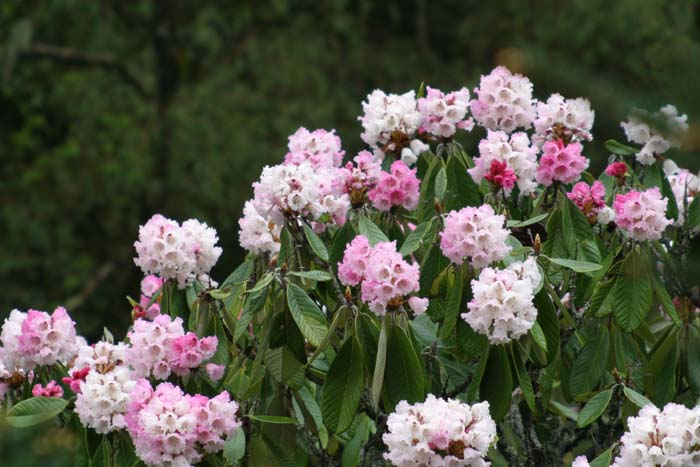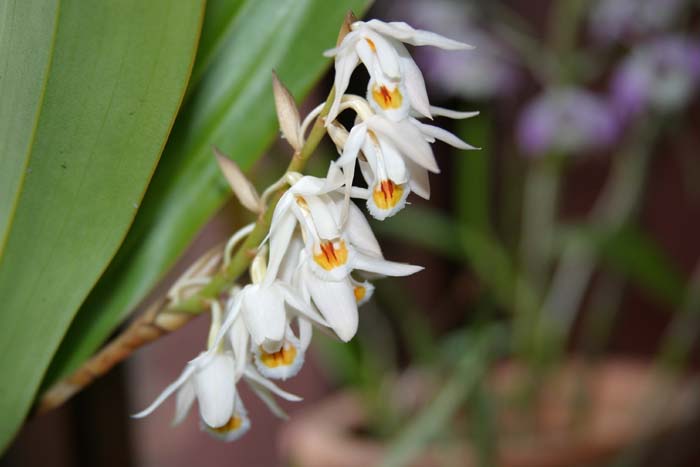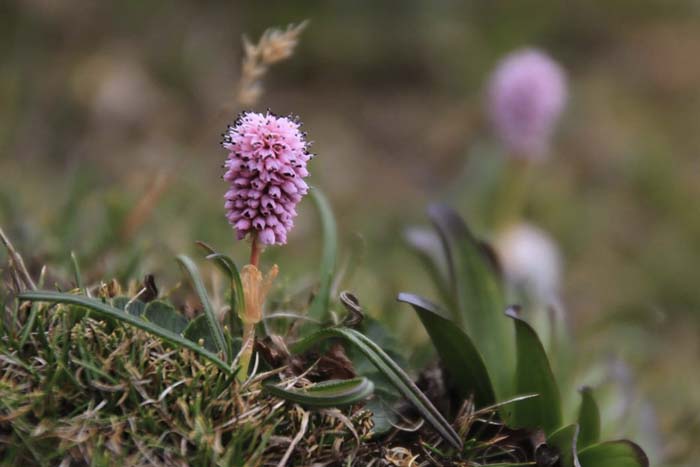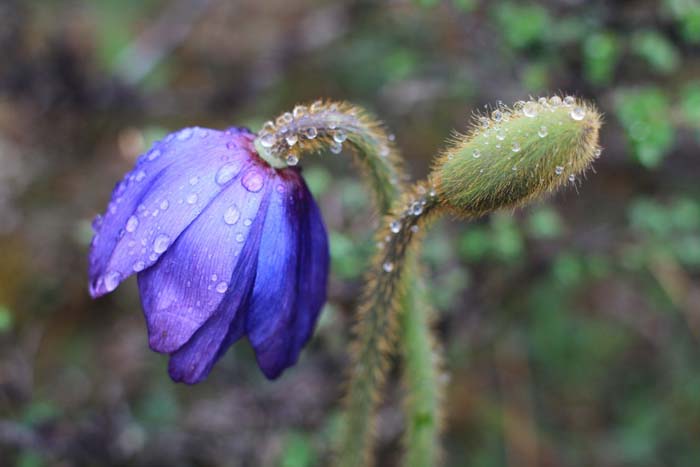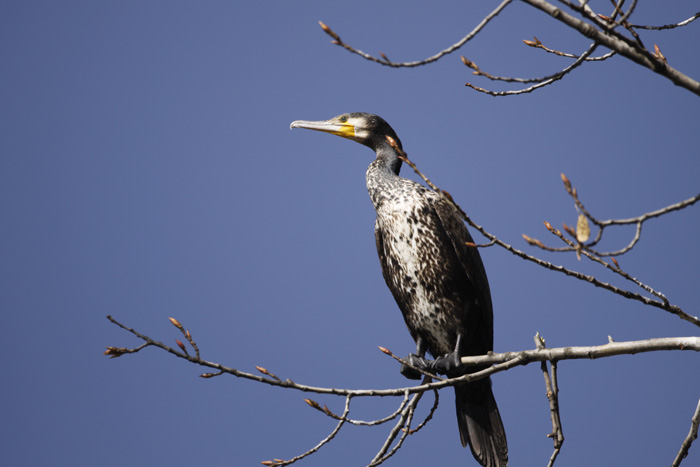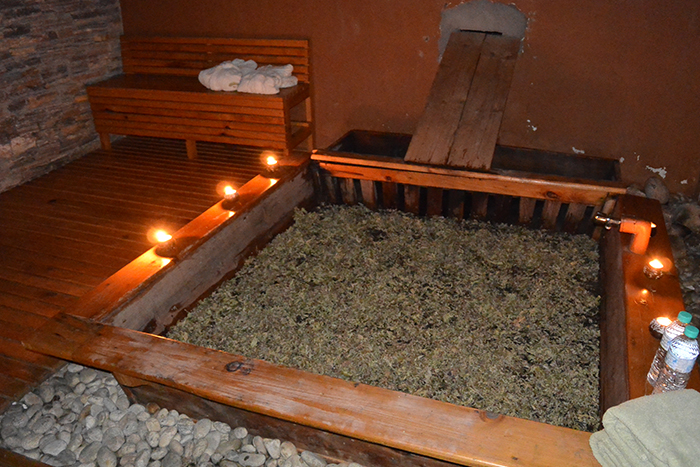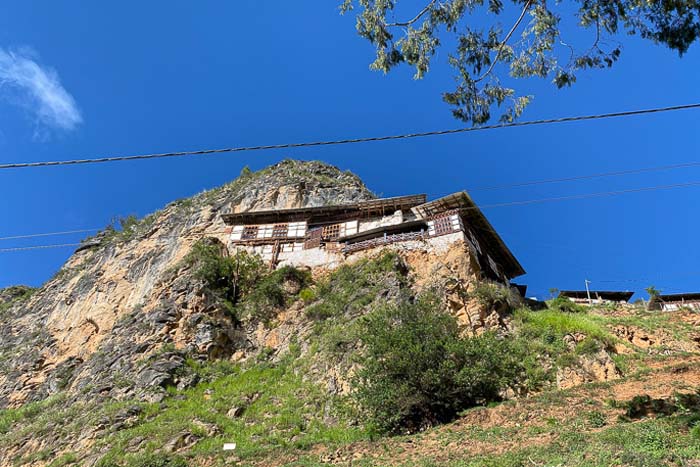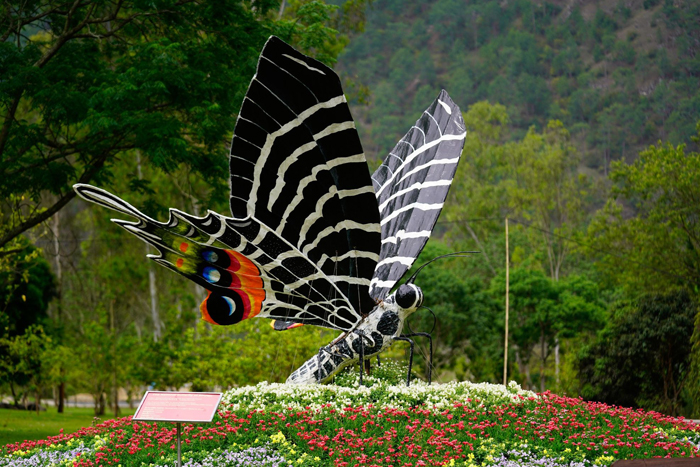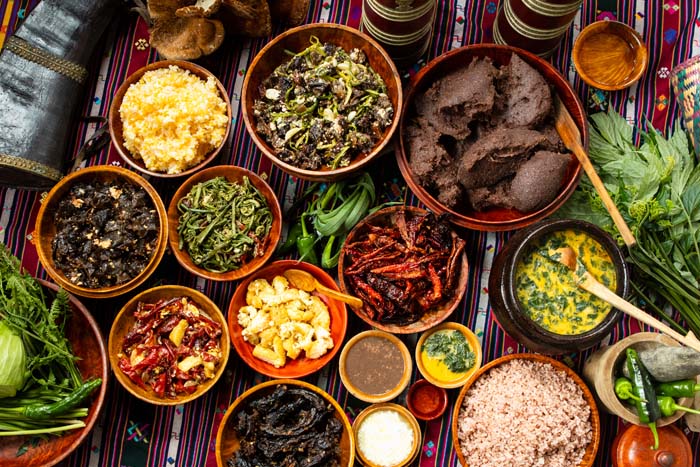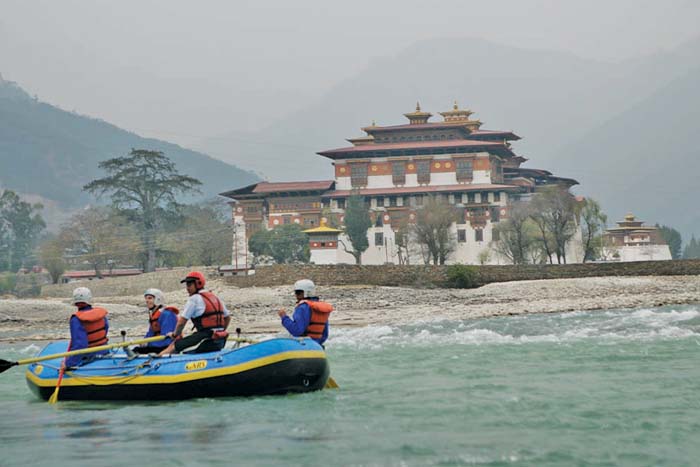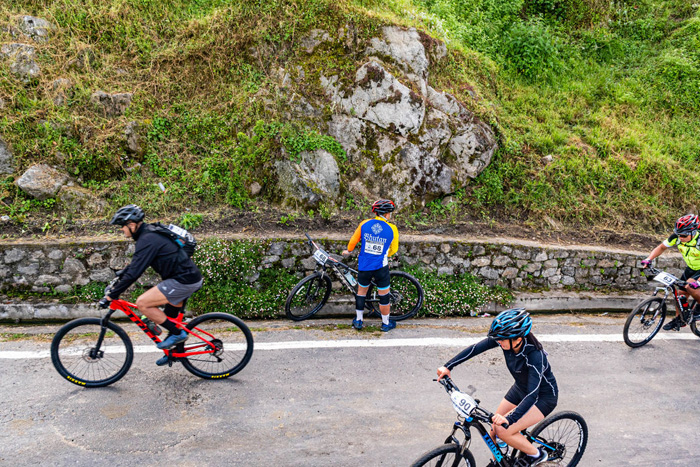Bhutan Botanical Tour
$1200





Tour Summary
Visit the small Himalayan Kingdom that houses over 5,400 species of plants, including 300 species of medicinal plants, some species thriving even at 3,700m above. Explore the 369 species of orchids that Bhutan has, of which 82 are unique to the mountain country. See and feel the 46 species of rhododendrons in the country. The tropical evergreen forests growing below 800m are repositories of a unique biodiversity. The tropical vegetation of the lower zones gives way to dark forests of oak, birch, maple, magnolia and laurel. Above 2,400m altitude is the home of spruce, yew, and weeping cypress, and higher still, growing up to the tree line, is the east Himalayan fir. At about 5,500m are low shrubs, rhododendrons, Himalayan grasses and flowering herbs. Bhutan’s national flower, Blue Poppy grows above the tree line 3,500 – 4,500m elevation.
Best Seasons: April-September
Starting Point: Paro, western Bhutan
Furthest Destination: Bumthang, central Bhutan
Highlights: Biodiversity Centre (Thimphu), Botanical Park (Lamperi), Jigme Dorji Wangchuck National Park, Jigme Singye Wangchuck National Park, and Thrumshingla National Park.
- Flight to Bhutan’s only international airport (2,250 meters elevation).
- Enroute see the world’s highest mountains – the Abode of the Gods
- After lunch, sightseeing around Paro valley
- Halt in Paro.
DAY 2: Paro
- After a short drive, hike to Taktsang Monastery (3,000 meters), famous religiously and for its location smack in the middle of a huge wall of cliff.
- Enroute see Bhutanese farms and meet people. Visit The Fortress of Victory (now in ruins) at Drukgyel, the National Museum, the Fortress on a Heap of Jewels (Paro Dzong), and the 7th century Kyichu Temple.
- Explore the vegetation in the valley towards late afternoon.
- Night halt at hotel in Paro.
DAY 3: Paro-Chelela-Thimphu
- Drive to Chelela pass (3,810 m, over 12,000 ft) through a mixed forest of Rosa brunonii, Pieris formosa and Daphne papyracea and scour for aromatic herbs, meconopsis species and many primulas (P. Smithiana, P. Denticulata, P. Sikkimensis). Chelela has an alpine ecosystem with several endangered and endemic species. Nearly all flora species found here are medicinal. Some rare species found are Meconopsis horidula, Meconopsis grandis, Fetillsria chirhosa, Aconitum Spp, Rhododendron anthopogon, Rhododendron nivale, Rhododendron setosum, Primula Species, Juniperus etc. The place is especially spectacular in the summer, when all the wildflowers are in full bloom.
- Night halt at hotel in Thimphu.
DAY 4: Thimphu
- Tour the National Bio-Diversity Centre, Serbithang (just 8 kms away from the main town), Botanical Garden at Serbithang, and the Mushroom Centre at Semtokha (5 kms)
- Visit the National Institute of Traditional Medicine (NITM) in Kawajangsa, Thimphu, to learn about Bhutan’s art of making traditional medicine, in particular the hundreds of plants that are used as ingredients.
- See places of historical and cultural interest in and around Thimphu.
- Night halt in Thimphu.
DAY 5: Thimphu-Dochula-Lamperi-Punakha
- Drive to Dochula (10,450 ft, or 3,100 meters), which provides a 360 degree panoramic view of the highest unclimbed mountains of the world. The place is considered a vital conservation area with significant altitudinal and associated changes in vegetation within short distances. The east – facing slope harbors cool temperate broad – leaves forest at the higher elevation and Pinus roxburghii (chirpine) in lower elevations while the west facing slope consists of conifers from Abies densa(fir) and Juniperous recurva down to Pinus wallichiana (blue pine).
- A few kilometers away is the Lamperi Royal Botanical Park, which has 46 species of Rhododendron. The park also has trekking routes that lead into a cool moist forest of huge oak, magnolia and birch trees draped in moss that rings with the sound of birds and insects. The park is part of a 47-sq mile critical biological corridor connecting the Jigme Singye Wangchuck National Park and the Jigme Dorji Wangchuck National Park. It has cool broad leaf forests, mixed conifer forests, fir and sub-alpine forests and the temperate rain forest with hundreds of species of fauna. Some of the rare species found in the park are the monal pheasants, blood pheasants, musk deer, tiger, leopard, red panda and the leopard cat.
- Walk down an old trading route and witness a forest of Silk Cotton trees, Jacaranda and many tree ferns as we climb down to Punakha (4,160 ft) through paddy fields, farm houses, mountain brooks, and lush green landscapes.
- Visit places of historical and cultural interest in the Punakha-Wangduephodrang valley, including the spectacular fortress of Punakha, and the Temple of Divine Mad Man.
- Night halt at hotel in Punakha.
DAY 6: Punakha-Wangdue
- We enter the Jigme Dorji Wangchuck National Park area where, among others, 55 orchid species (including Coelogyne corymbosa, Dendrobium nobile and Dendrobium perardi) have been found in the sub-tropical forests of the upper Mo Chu valley.
- We spend most of the day in the park and towards evening take a leisurely drive along the Punatsangchu river basin which is renowned as the habitat of one of the world’s most endangered bird, the White-Bellied Heron.
- Night halt at hotel in Wangduephodrang
DAY 7: Wangdue-Phobjikha
- We head to the east through the ruins of an impressive 17th century fortress, to a splendid landscape of alpine forests, meadows, and flowers, including different species of Rhododendrons, Legumes, Magnolia, Weeping Cypress (national tree of Bhutan), etc.
- Then we enter into the Phobjika valley (10,000 ft), the winter home of the rare black-necked cranes. We walk for two hour through scattered forest of red, pink and white rhododendrons (Rhododendron hodgsonii, R. keysii, R. kesangiae, R. ciliatum) to our lodge.
- Halt at Phobjikha.
DAY 8: Phobjikha-Bumthang
- Drive to Bumthang valley (200km) through Pelela Pass which ascends up to 3,340m and see wonderful view of Himalayan Mountains. The drive takes us through thick dwarf bamboo, Yak habitats, and Rhododendrons with beautiful hues of red, white, and yellow.
- See the spectacular Trongsa fortress, the ancestral palace home of Bhutan’s Kings. Also see the Watch Tower, and the town before driving to Bumthang valley across the Yotongla Pass.
- Halt in Bumthang.
Day 9: Bumthang– Ura-Bumthang
- Drive to Ura valley, see the “Burning Lake” on the way, and stop enroute for various species of Rhododendrons, Rubus, Acer, Aconitum, Delphinium, Ranunculus, Clemantis, few species of orchid such as Coelogyne, Pleione, Cephalenthera, conifers such as Fir, Hemlock, Pine, Juniperus, Primulas, Androsac, etc.
- Drive further up to Thriumshing La National Park covering Bumthang, Lhuentse, Zhemgang, and Mongar districts. Bhutan has designated one area there as Insitu-Rhododendron Garden. The Garden showcases the Kingdom’s rhododendron diversity in their natural habitat in an area of approximately 2 hectares harboring 22 different species of rhododendron in assemblage.
- Thumshing La National Park is home to many endemic species namely Daphne ludlowii, Lobelia nubigena, Vanda griffithii, Rubus sengorensis, and Pedicularis spp. It is also has Red Panda, reptiles, amphibians and different avian fauna.
- Drive back to Bumthang and halt the night there.
Day 10: Bumthang
- Explore Bumthang valley
- Visit places of cultural and historical interests in the valley
- Undertake an hour-long hike to a local village.
- Night halt in Bumthang.
Day 11: Bumthang–Thimphu
- In the evening, take a stroll of Thimphu town
- Halt in hotel, Thimphu.
Day 12: Thimphu – Paro
- Drive to Paro International Airport for departure.
|
GROUP SIZE: Any group Size |
TRIP SEASONS: March - June |
INCLUDED
- Bhutan Royalties, tourists fees, Visa fees and taxes.
- Accommodations in listed or similar hotels (pleasant hotels 3-4 star type) during the tour and in tents during the trek.
- All meals, including evening tea/coffee etc through-out the trip.
- All land transfers, sightseeing with entrance fees.
- Experienced Culture Tour Guide.
- Bottled water in the vehicle and other camp serivce.
NOT INCLUDED
- Flights in and out of Bhutan.
- Travel insurance, Drink, Visa fees, Laundry
Related Tour
-
Birds of Bhutan Tour
Bhutan is home to some of the...
$2100 -
Expedition of the healing waters
Bhutanese believe that hot-springs have medicinal values...
$1000 -
Meditating in Drukyul
Bhutan has some of the Buddhist world’s...
$1800 -
Bhutan Photography Tour
Bhutan is a photographer’s delight and almost...
$1300 -
Experiencing Bhutanese Victuals
Bhutan is a diverse country comprising...
$800 -
Rafting adventure
They cut through high valleys and low...
$600 -
Biking in Drukyul
You can get the adrenaline rush and...
$700


